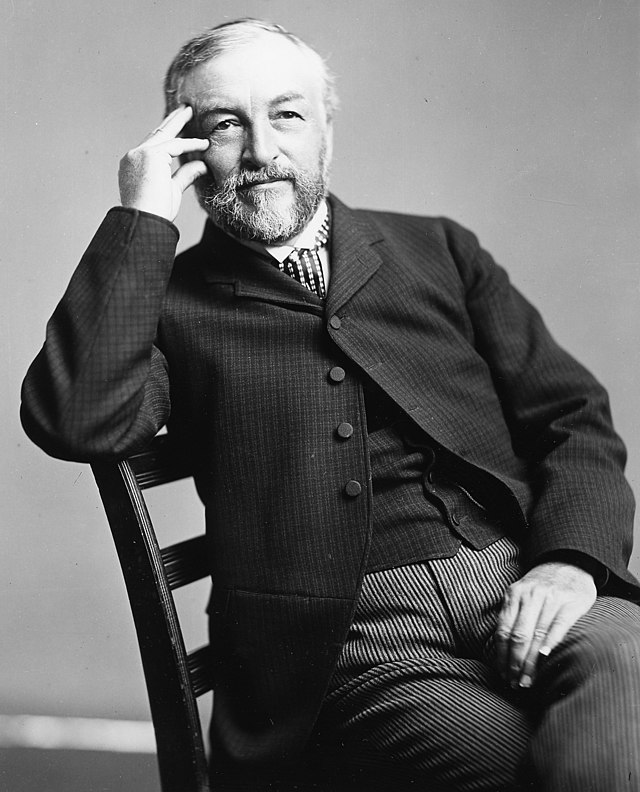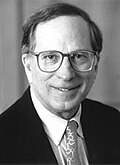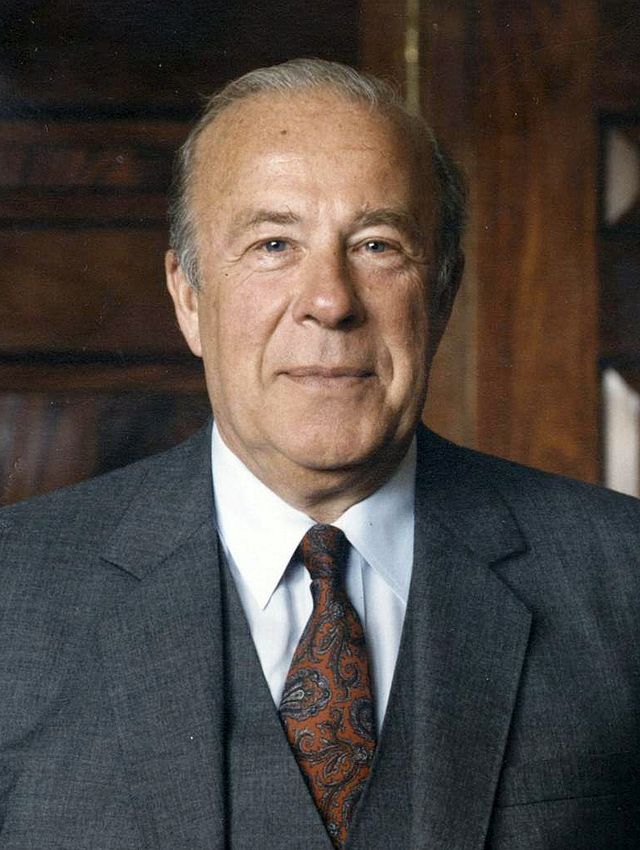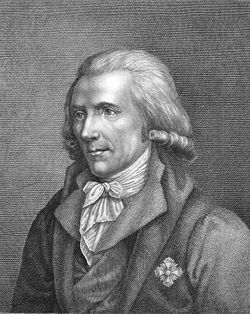| Year |
Name |
Location[a] |
Rationale |
|---|
| 1839 |
Robert Hare |
Philadelphia, Pennsylvania |
Inventor of the oxy-hydrogen blowpipe |
| 1862 |
John Ericsson |
New York, New York |
His work improved the field of heat management, but the award was specifically for his invention of the caloric engine of 1858. |
| 1865 |
Daniel Treadwell |
Cambridge, Massachusetts |
Heat management. He was awarded especially for his contributions towards a "cannon of large caliber, and great strength and endurance". |
| 1866 |
Alvan Clark |
Cambridge, Massachusetts |
Improved refracting telescopes |
| 1869 |
George Henry Corliss |
Providence, Rhode Island |
For improving the steam engine |
| 1871 |
Joseph Harrison Jr. |
Philadelphia, Pennsylvania |
Towards his concern for safer steam boilers |
| 1873 |
Lewis Morris Rutherfurd |
New York, New York |
For improving the "processes and methods" of astronomical photography |
| 1875 |
John William Draper |
New York, New York |
For his work towards apprehending radiant energy |
| 1880 |
Josiah Willard Gibbs |
New Haven, Connecticut |
Founded the field of chemical thermodynamics |
| 1883 |
Henry Augustus Rowland |
Baltimore, Maryland |
For his research in light and heat |
| 1886 |
Samuel Pierpont Langley |
Allegheny, Philadelphia |
For his work towards the understanding of radiant energy |
| 1888 |
Albert Abraham Michelson |
Cleveland, Ohio |
Measured the velocity of light, and contribution towards the motion of the luminiferous ether, and absolute determination of the wavelengths of light |
| 1891 |
Edward Charles Pickering |
Cambridge, Massachusetts |
For his work on stellar photometry and stellar spectra |
| 1895 |
Thomas Alva Edison |
Orange, New Jersey |
For his investigations in electric lighting |
| 1898 |
James Edward Keeler |
Allegheny, Pennsylvania |
For the applications of the spectroscope, and especially his investigations of nebulae and the physical contents of Saturn's rings |
| 1899 |
Charles Francis Brush |
Cleveland, Ohio |
For the development of the electric arc lamp |
| 1900 |
Carl Barus |
Providence, Rhode Island |
For his heat research |
| 1901 |
Elihu Thomson |
Lynn, Massachusetts |
For his work in welding and lighting |
| 1902 |
George Ellery Hale |
Chicago, Illinois |
For his investigations in solar and stellar physics and for the invention of the spectro-heliograph |
| 1904 |
Ernest Fox Nichols |
New York, New York |
For his research on radiation, radiation pressure, stellar heat, and the infrared spectrum |
| 1907 |
Edward Goodrich Acheson |
Niagara Falls, New York |
For the application of the electric furnace to the production of carborundum and graphite |
| 1909 |
Robert Williams Wood |
Baltimore, Maryland |
For light-related discoveries, including the optical properties of sodium and other metallic vapors |
| 1910 |
Charles Gordon Curtis |
New York, New York |
For his improvements to the steam turbine |
| 1911 |
James Mason Crafts |
Boston, Massachusetts |
For his work in thermometry, and the development of new fixed points on the scale.[b] |
| 1912 |
Frederic Eugene Ives |
Woodcliff-on-Hudson, New Jersey |
For his inventions in color photography and photoengraving |
| 1913 |
Joel Stebbins |
Urbana, Illinois |
For the development of the selenium photometer and its application to scientific problems |
| 1914 |
William David Coolidge |
Schenectady, New York |
For his invention of ductile tungsten |
| 1915 |
Charles Greeley Abbot |
Washington, D.C. |
For his research in solar radiation |
| 1917 |
Percy Williams Bridgman |
Cambridge, Massachusetts |
For his high-pressure thermodynamic breakthroughs |
| 1918 |
Theodore Lyman |
Cambridge, Massachusetts |
Awarded for his research on short-wave and long-wave wavelengths |
| 1920 |
Irving Langmuir |
Schenectady, New York |
"For his research in thermionic and allied phenomena" |
| 1925 |
Henry Norris Russell |
Princeton, New Jersey |
Awarded for his research in solar radiation |
| 1926 |
Arthur Holly Compton |
Chicago, Illinois |
Awarded for his research in Roentgen rays |
| 1928 |
Edward Leamington Nichols |
Ithaca, New York |
"For his research in spectrophotometry" |
| 1930 |
John Stanley Plaskett |
Victoria, British Columbia |
For his astronomical spectrographic research[c] |
| 1931 |
Karl Taylor Compton |
Cambridge, Massachusetts |
He was awarded the medal for thermionics and spectroscopic research. |
| 1933 |
Harlow Shapley |
Cambridge, Massachusetts |
For his work with the luminosity of stars and galaxies |
| 1937 |
William Weber Coblentz |
Washington, D.C. |
For his improvements in the measurement of heat and light |
| 1939 |
George Russell Harrison |
Belmont, Massachusetts |
"For pioneering improvements in spectroscopics" |
| 1941 |
Vladimir Kosma Zworykin |
Princeton, New Jersey |
Awarded for the creation of the iconoscope and other related devices |
| 1943 |
Charles Edward Mees |
Rochester, New York |
For his contributions to photography |
| 1945 |
Edwin Herbert Land |
Cambridge, Massachusetts |
For his inventions related to the application of polarized light |
| 1947 |
E. Newton Harvey |
Princeton, New Jersey |
For his research in bioluminescence |
| 1949 |
Ira Sprague Bowen |
Pasadena, California |
For his work on the identification of nebulium and for other outstanding works |
| 1951 |
Herbert E. Ives |
Montclair, New Jersey |
For his research in the field of optics |
| 1953 |
Enrico Fermi |
Chicago, Illinois |
For his investigations in electromagnetic radiation and nuclear energy |
| 1953 |
Willis E. Lamb Jr. |
Stanford, California |
Awarded for studying the hydrogen spectrum |
| 1953 |
Lars Onsager |
New Haven, Connecticut |
For his investigations in thermodynamics related to transportation |
| 1955 |
James Franck |
Chicago, Illinois |
For his studies in the investigation of photosynthesis |
| 1957 |
Subrahmanyan Chandrasekhar |
Williams Bay, Wisconsin |
For his investigations of the radiative energy balance in stars |
| 1959 |
George Wald |
Cambridge, Massachusetts |
For identifying the biochemical basis of vision |
| 1961 |
Charles Hard Townes |
New York, New York |
"For his development of the laser" |
| 1963 |
Hans Albrecht Bethe |
Ithaca, New York |
For pioneering studies in stellar nucleosynthesis |
| 1965 |
Samuel Cornette Collins |
Cambridge, Massachusetts |
For the invention of the Collins Helium Cryostat and other pioneering work |
| 1965 |
William David McElroy |
Baltimore, Maryland |
For his work on the molecular origin of bioluminescence |
| 1967 |
Robert Henry Dicke |
Princeton, New Jersey |
"For his contributions to microwave radiometry and to the understanding of atomic structure" |
| 1967 |
Cornelius B. Van Niel |
Stanford, California |
For his contributions to the study of photosynthesis |
| 1968 |
Maarten Schmidt |
Pasadena, California |
For his work deducing the spectra of quasi-stellar objects |
| 1971 |
MIT Group (John. A Ball, Alan H. Barrett, Bernard F. Burke, Joseph C. Carter, Patricia P. Crowther, James M. Moran Jr., Alan E. E. Rogers)
Canadian Group (Norman W. Broten, R. M. Chisholm, John A. Galt, Herbert P. Gush, Thomas H. Legg, Jack L. Locke, Charles W. McLeish, Roger S. Richards, Jui Lin Yen)
NRAO–Cornell Group (Claude C. Bare, Barry G. Clark, Marshall H. Cohen, David L. Jauncey, Kenneth I. Kellermann) |
Massachusetts Institute of Technology (Ball, Barrett, Burke, Carter, Crowther, Moran, Rogers)
National Research Council (Canada) (Broten, Legg, Locke, McLeish, Richards); Dominion Radio Astrophysical Observatory (Galt); University of Toronto (Yen); Queen's University (Chisolm); University of British Columbia (Gush)[5]
National Radio Astronomy Observatory (Bare, Clark, Kellerman); Cornell University (Cohen, Jauncey)[6][7] |
"For their work in the field of long-baseline interferometry." The Rumford Committee sponsored a symposium on recent developments in the field to mark the unusual circumstances of the 1971 award;[8] it was reported in the January 14, 1972 issue of Science.[9] |
| 1973 |
E. Bright Wilson |
Cambridge, Massachusetts |
For pioneering the importance of symmetry in polyatomic molecules and for his active work in the field of microwave spectroscopy |
| 1976 |
Bruno Rossi |
Cambridge, Massachusetts |
For discovering the origins of cosmic radiation |
| 1980 |
Gregorio Weber |
Urbana, Illinois |
For researching the theory of, and working on the application of, fluorescence |
| 1980 |
Chen Ning Yang
Robert Mills |
Stony Brook, New York
Columbus, Ohio |
"For development of a generalized gauge invariant field theory" |
| 1985 |
Hans Georg Dehmelt
Martin Deutsch
Vernon Willard Hughes
Norman Foster Ramsey |
Seattle, Washington
Cambridge, Massachusetts
New Haven, Connecticut
Cambridge, Massachusetts |
Awarded for his work in the field of atomic spectroscopy |
| 1986 |
Robert B. Leighton
Frank J. Low
Gerry Neugebauer |
Pasadena, California
Tucson, Arizona
Pasadena, California |
For his work in developing infrared astronomy |
| 1992 |
James R. Norris
Joseph J. Katz
George Feher |
Chicago, Illinois
Chicago, Illinois
San Diego, California |
Awarded for working towards the understanding of photosynthesis |
| 1996 |
John C. Mather |
Greenbelt, Maryland |
For his research related to the cosmic microwave background |
| 2008 |
Sidney D. Drell
Sam Nunn
William J. Perry
George P. Shultz |
Stanford University
Nuclear Threat Initiative[d]
Stanford University
Stanford University |
For their efforts to reduce the global threat of nuclear weapons[10] |
| 2015 |
Federico Capasso
Alfred Cho |
Harvard John A. Paulson School of Engineering and Applied Sciences
Alcatel-Lucent Bell Laboratory |
For their contributions to the field of laser technology |
| 2019 |
Ernst Bamberg
Ed Boyden
Karl Deisseroth
Peter Hegemann
Gero Miesenböck
Georg Nagel |
Max-Planck Institute of Biophysics
Massachusetts Institute of Technology
Stanford University
Humboldt University of Berlin
University of Oxford
University of Würzburg |
For "their extraordinary contributions related to the invention and refinement of optogenetics."[11] |
| 2021 |
Charles L. Bennett |
Baltimore, Maryland |
For his contributions to the field of cosmology |
|















